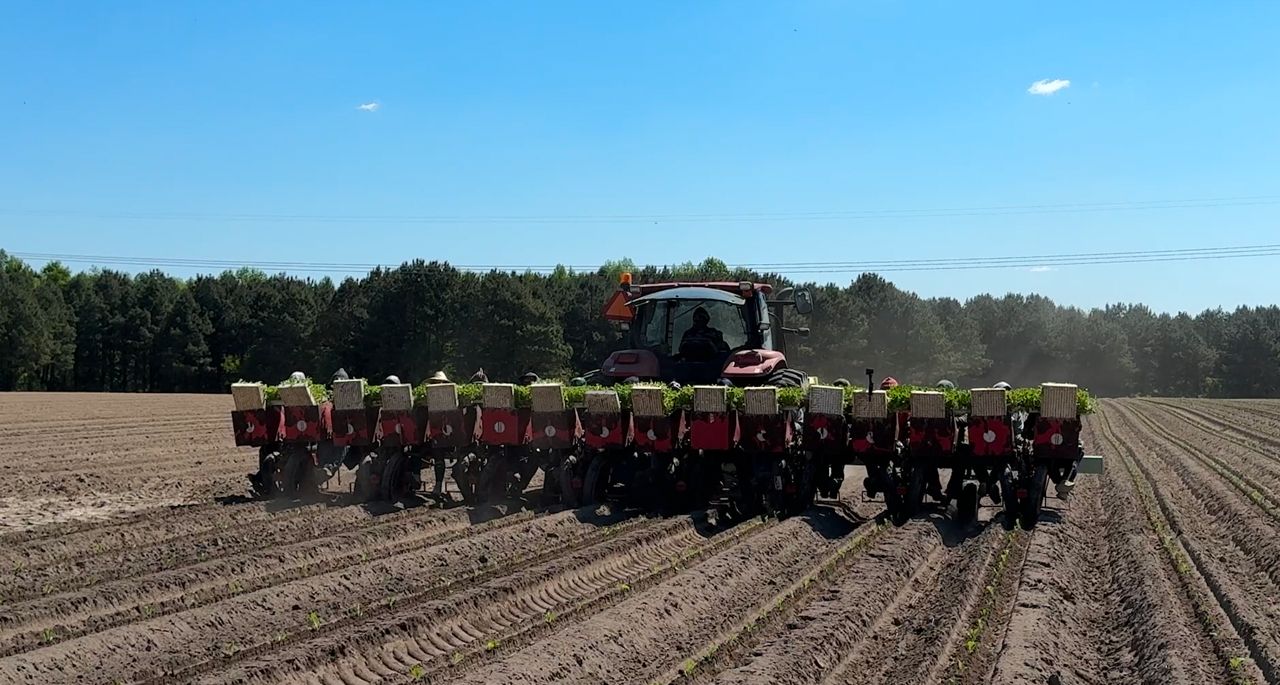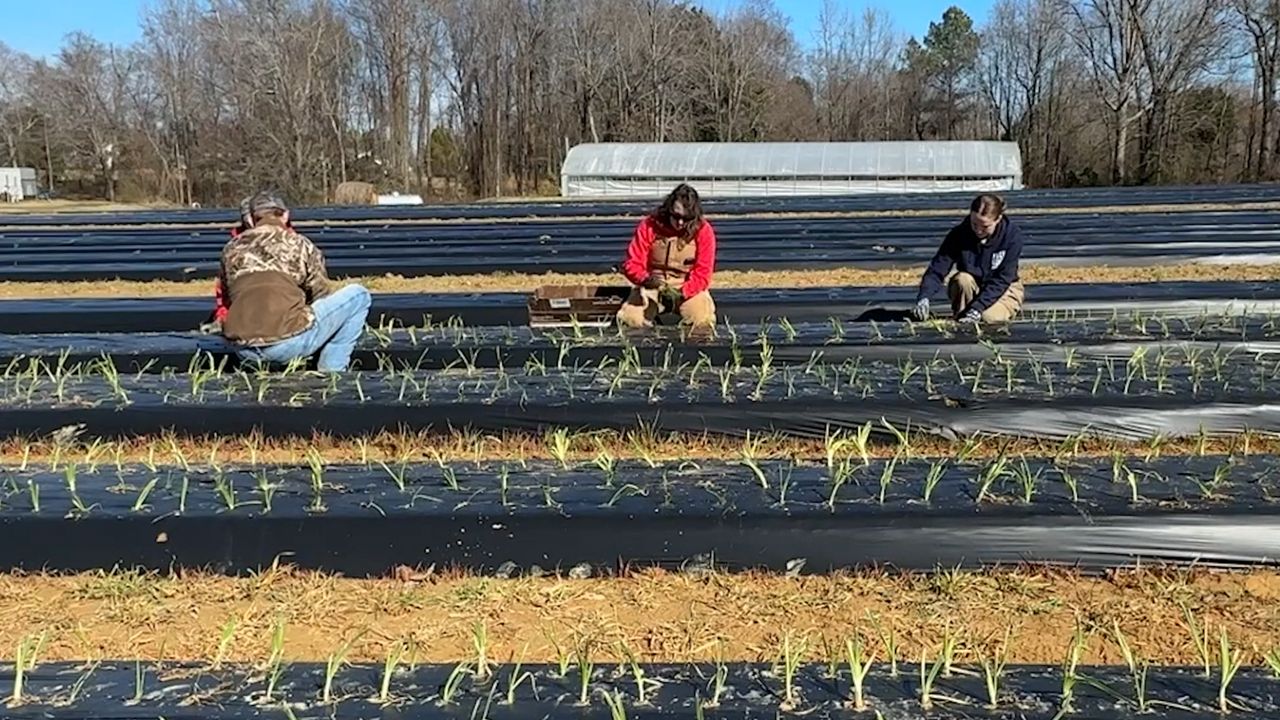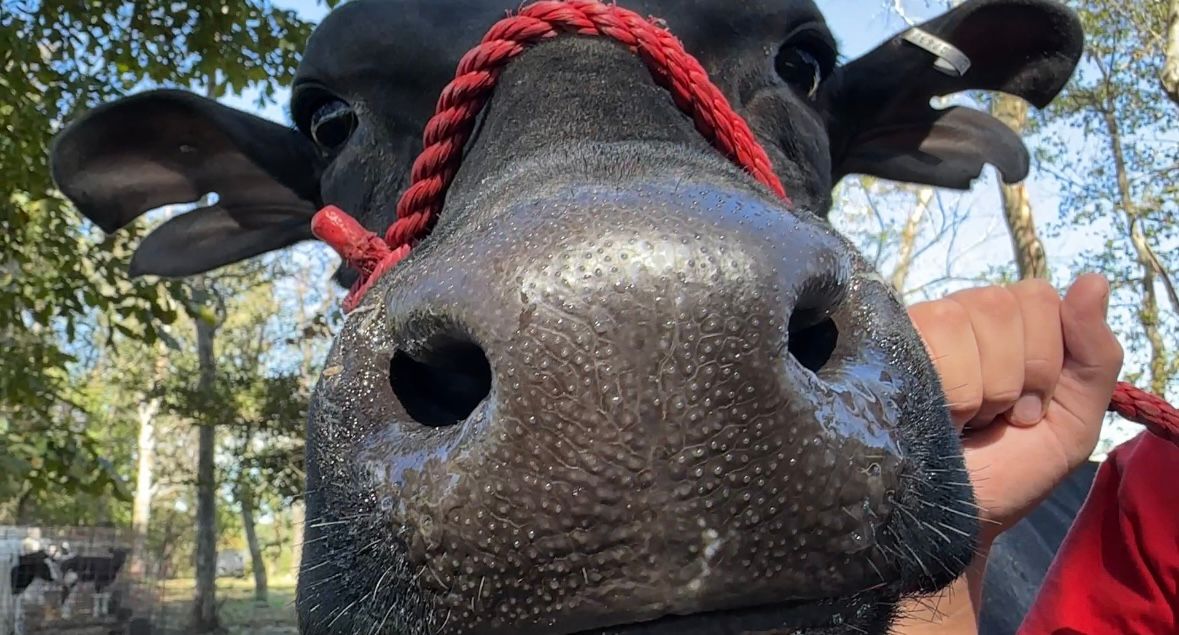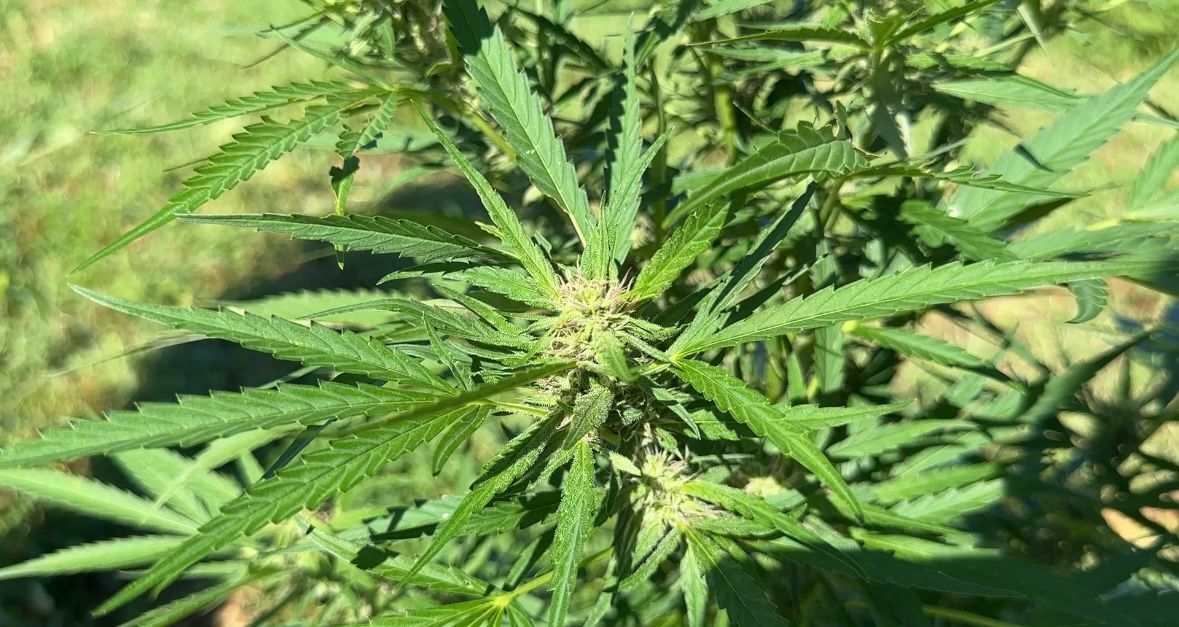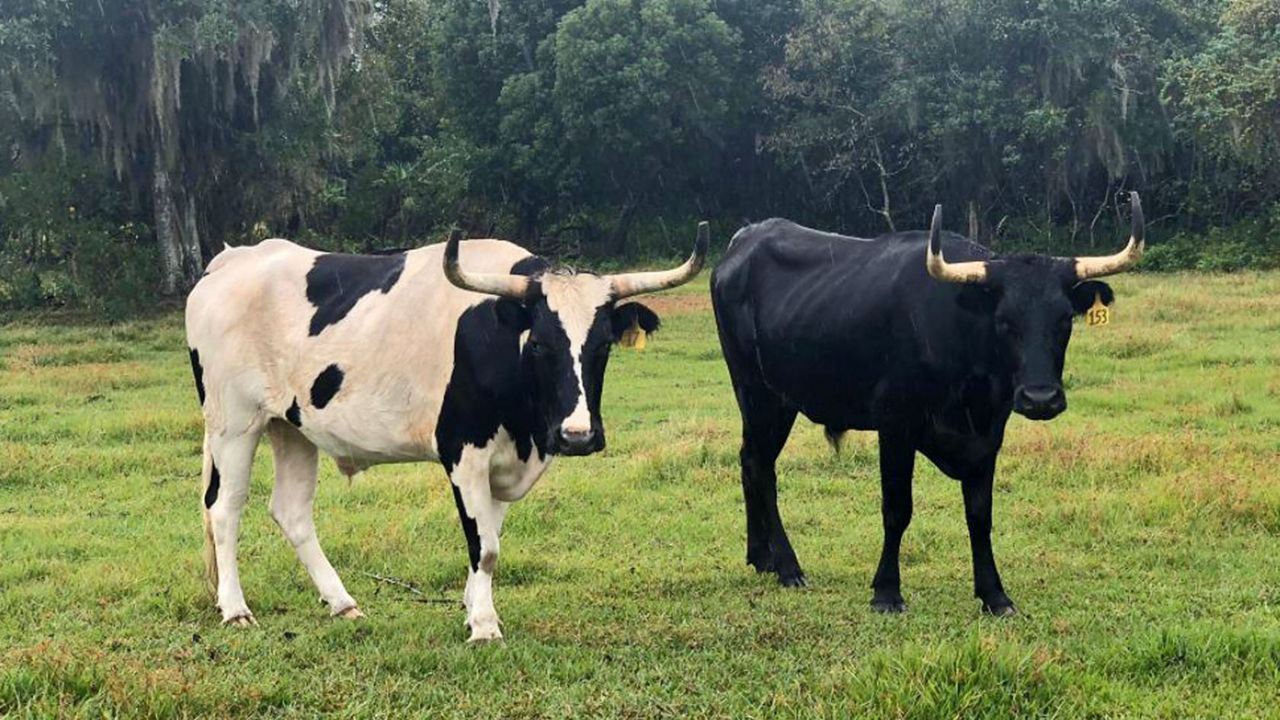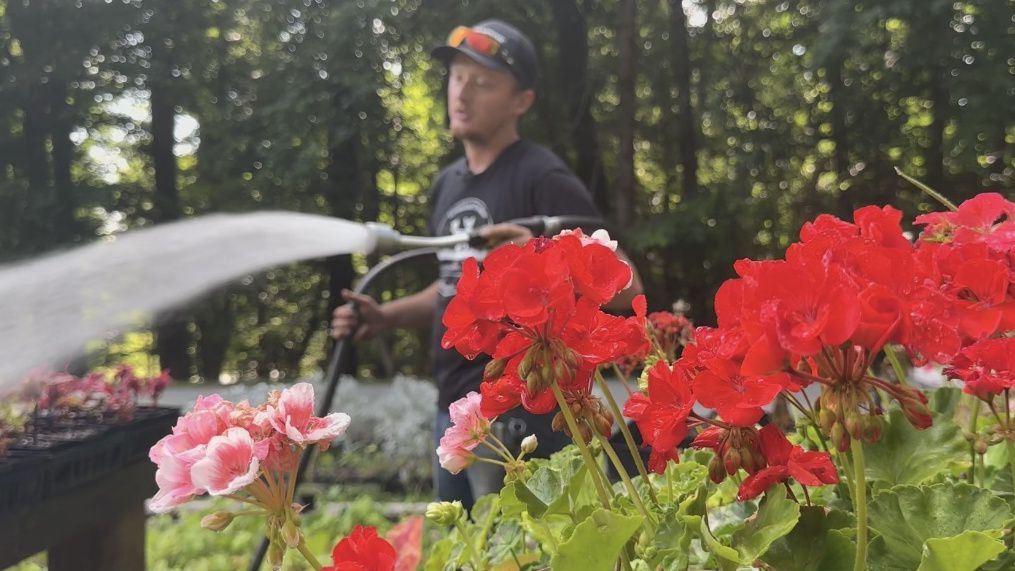CLIMAX, N.C. — In 2024, North Carolina saw an economic impact of over $111 billion from agriculture, according to North Carolina State University.
The success is partly because of help from H-2A visa workers.
What You Need To Know
- H-2A Visas are legal work visas for foreign workers for temporary agricultural work
- These workers are a vital part of North Carolina's agricultural economy
- Some farmers fear revokes of the visa program, other farmers hope for more year round help
- President Donald Trump mentioned making changes to the program for workers to gain possible citizenship at a cabinent meeting in April but no movement has been made yet
For Faylene Whitaker, H-2A visa workers are the heartbeat of her farm.
“They are so important to the economy of the United States and the safe food,” Whitaker said.
Whitaker is a co-owner of Whitaker Farms in Climax, starting the business with her husband Richard when they were teenagers.
This year, the farm will turn 50, with Whitaker crediting her H-2A visa workers as a part of the farm's success.
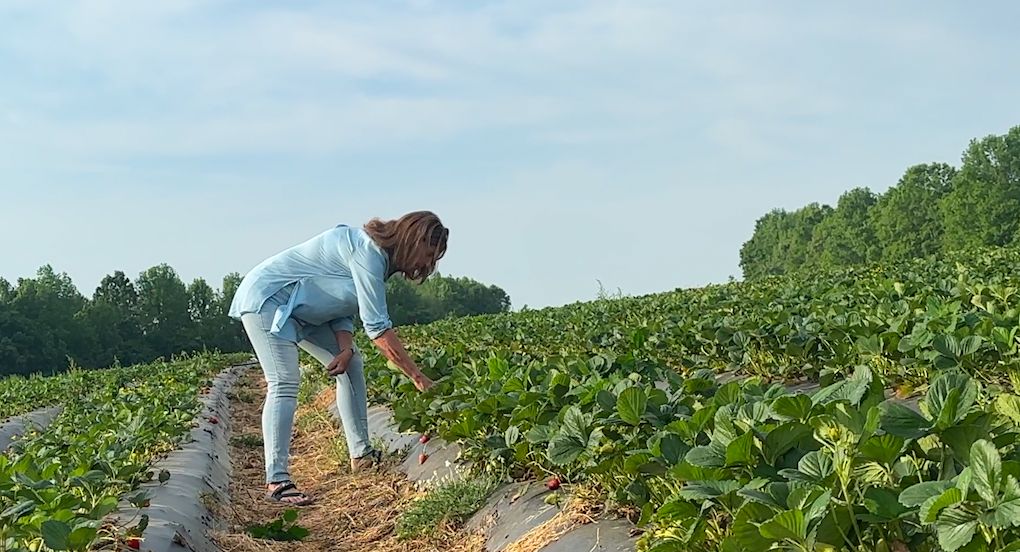
“We could not survive without them, 100%,” Whitaker said.
H-2A visa workers are seasonal foreign workers who come to the states for a few months for temporary agricultural work when there are insufficient qualified and available U.S. workers.
The USDA reports over 378,000 H-2A visa positions were approved in 2023 in the United States, up from 48,000 positions certified in 2005.
“They come here to work. They don’t come here to party. They come here to work and send money to their families at home,” Whitaker said.
Whitaker says the visa workers make more money in the U.S. than they do in their native country.
She said her longest H-2A visa worker has been with her family for over 30 years, coming back year after year. Some workers even bring other family members to work for the next seasons.
Whitaker’s workers help in numerous areas of the farm, helping gather hundreds of acres of produce and more.
“Some of my guys have been with me for so long, they’re like family,” Whitaker said.
She says she pays around $1,100 per worker to bring them here after being vetted. She must provide approved housing, and Whitaker even provides them with a van.
“We can trust them to run the other workers where they want to go and give them some freedom on the weekends when they’re not working to enjoy being here in North Carolina,” Whitaker said.
Whitaker along with many farmers across the country, have been worried about possible changes to the visa program as other programs have been cut. Just one more additional factor for farmers amid tariff negotiations.
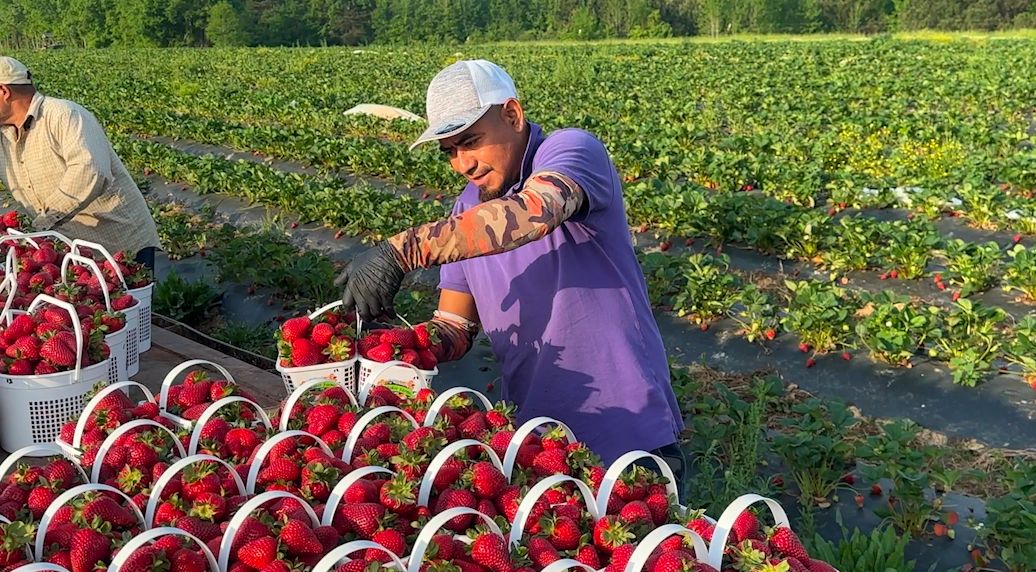
“Anywhere in the production of food, there’s always the fear of where will my workers come from? How is my fertilizer going to be imported? Is it going to keep going up higher? Because we’ve watched it go up for the last three years,” Whitaker said.
Whitaker says H-2A visa workers must go home for a few months out of the year, leaving farmers to request aid during their busiest season. Although some industries like poultry, dairy and even nurseries need help full time.
“This whole program needs updating to fit to go with today’s farm, because today’s farm for most farmers is now year round. It’s not seasonal like it used to be,” Whitaker said.
In April, President Donald Trump said during a cabinet meeting he may ease immigration restrictions for farm laborers.
He said under his plan, farm and hotel workers on a visa would leave the country and could return legally with the backing of their U.S. employers. With no official movement on this suggestion, however, some farmers are left with uncertainty.
“We have all the documents. We have all the papers in our office that could be looked at. This has always been a dream country. Why are we not going to just continue the dream?” Whitaker said.
Whitaker says if H-2A visas were to be revoked, her farm would have to stop production of fruits and vegetables, and the production of crops needed to be picked by hand would diminish in the U.S.







